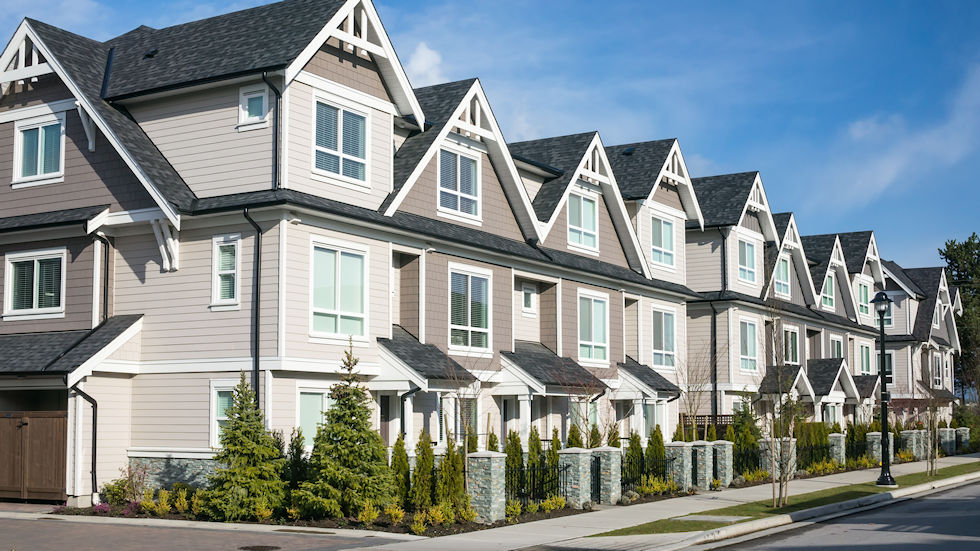Arbor Realty Trust, Inc. (NYSE: ABR) sees the ongoing shortage of affordable housing in the United States as a social problem that can’t be ignored. Indeed, the mREIT is looking to expand its presence in the affordable housing sector and believes it has the expertise and diversity of products to really make an impact in the segment at a time of increased need.
Arthanais Williams, managing director, affordable housing, for Uniondale, New York-based Arbor, says the lack of clean and safe affordable housing is a problem that has impacted urban, suburban, and rural areas for decades.
"This shortage has been intensified as the housing supply for middle-income households has grown stagnant, due in large part to income growth lagging behind the cost of living," Williams says. "Further exacerbating this problem is the wave of unemployment and underemployment related to the COVID pandemic."
According to the National Low Income Housing Coalition, the U.S. has a shortage of 6.8 million affordable housing options, with no state having enough to meet the increasing demand. The pandemic only added to the problem, as people lost jobs and were unable to pay rent.
Williams, who has more than two decades of experience in affordable and community development finance, most recently at Freddie Mac, was hired in October 2020 to manage the entire platform and expand Arbor's market share in the affordable housing sector.
Williams explains that as Arbor has built out its platform, it now has the capacity to provide debt opportunities and private equity solutions for a wide range of transactions including the 9% Low Income Housing Tax Credit (LIHTC), which offers up to a 70% subsidy for developers and is generally reserved for new construction, and the 4% LIHTC, which is typically used for rehabilitation projects, utilizing at least 50% in federally tax-exempt bond financing and offering up to a 30% subsidy.
Arbor also focuses on: Section 8 housing, whereby private landlords receive assistance on behalf of low-income households; workforce housing, targeted at households that earn too much to qualify for traditional affordable housing subsidies; and, NOAH (Naturally Occurring Affordable Housing), which refers to residential rental properties that are affordable, but unsubsidized by any federal program.
"What separates us from the competition is our in-depth knowledge of the multifamily affordable housing process combined with our relationships with the GSEs. These competitive advantages allow us to get the most for our clients," Williams says.
Furthermore, given Arbor's depth of experience, the company views its role with clients as more than a financing partner but also as an advisor to help navigate them through the structuring, financing, and asset management processes.
"Arbor is one of the top small balance loan (SBL) and conventional lenders in the nation, and thus providing financing for affordable housing is a natural extension of the suite of products we currently offer," Williams says.
But more than that, he says, and consistent with Arbor's mission and history, the platform recognizes the importance of the social good of providing affordable housing. "Our role as a responsible corporate citizen demands that we respond to the overall need in these traditionally underserved communities with capital and investments," he says.
Current Trends
One trend that Arbor is seeing today that is impacting the affordable housing segment is a shift of developers and investors that were in other sectors of the real estate market and are now making their way into the affordable multifamily space.
"With more competition, we have seen cap rate compression resulting in significant volatility in the acquisition price for affordable transactions," Williams says. "This, combined with the more recent volatility in interest rates, has made the financing of affordable transactions even more challenging."
Williams says this is a common situation in the market that Arbor is solving for with its active affordable housing partners every day—sourcing additional loan proceeds and private equity while properly structuring the transaction to maximize the rate of return to clients.
Arbor recently closed two affordable transactions, Sienna Heights and Cordova Park Apartment Homes, in Lancaster, California for more than $118 Million. In addition, Arbor closed two portfolios in Alabama and Tennessee, consisting of multiple properties, each with its own separate Housing Assistance Payment (HAP) contract. HAP contracts specify the number of units in a particular mortgaged property for which Section 8 assistance will be provided.
Growing the Segment
In 2021, Arbor is expanding its equity investment platform as well as its bridge loan, private label, and mezzanine debt programs to address the needs of its affordable housing partners and clients.
"The expansion of these products, combined with the traditional GSE executions, will give our clients the full breadth of financing options to get their transactions completed," Williams says. "COVID-19 did not change our strategy but only intensified our resolve to impact the market."
Still, getting affordable transactions completed in the current environment grows more challenging every day.
Williams says it is important for borrowers to work with lenders who have the technical expertise, knowledge, experience, and access to the full array of financial products to get their transactions through the affordable housing financing process. "This process is full of pitfalls that can and will delay their transaction's ability to move forward, so it is imperative that borrowers have the right team in place."
